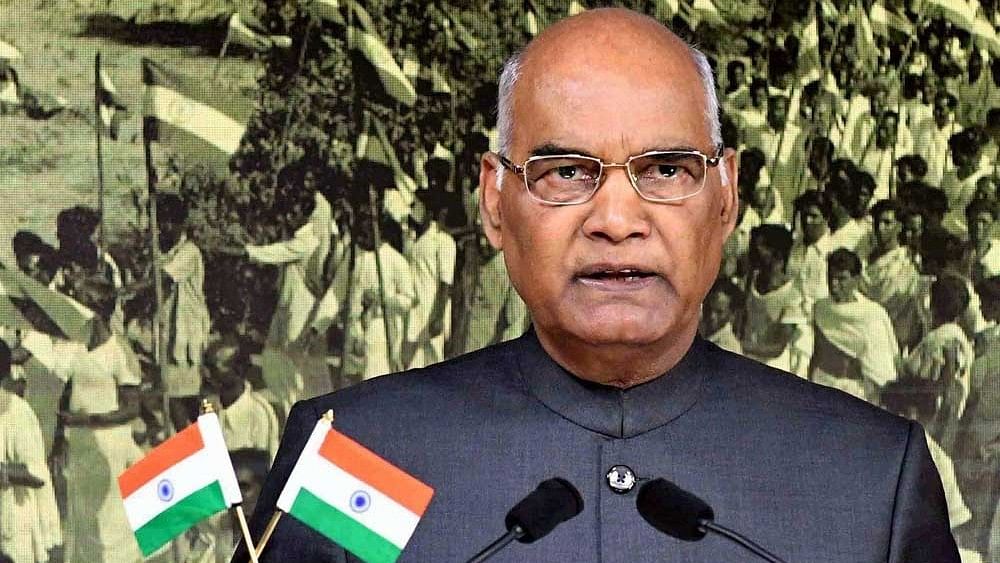
Former president Ram Nath Kovind.
Credit: PTI File Photo
The proposal for simultaneous elections for parliament and state assemblies seems to be gaining momentum with the high-level committee appointed by the government actively pursuing it.
The committee, headed by former President Ram Nath Kovind, had issued a notice inviting views and suggestions from the public on the matter between January 5 and 15. It has now been reported that the committee received 20,972 responses and 81 per cent of them were in favour of the proposal. It has received representations from 17 of the 56 registered political parties in the country. Kovind has initiated discussions on the proposal with former Chief Justices, former Chief Election Commissioners (CEC), eminent jurists and business bodies.
The next meeting of the committee has been fixed for January 27. All the activity has given rise to the view that the process is being speeded up and the proposal may be implemented sooner than expected.
The Law Commission and the Niti Aayog have supported the proposal. Prime Minister Narendra Modi has more than once called for the holding of simultaneous elections, including in his Independence Day speech in 2019. Kovind had mentioned it in his address to the joint session of parliament in 2017. Other members of the committee are also considered to be supporters of the proposal.
Congress leader Adhir Ranjan Chowdhury is the only member who may oppose it, but he is not participating in the committee’s proceedings. The appointment of the committee itself and its composition indicated that the government wanted a positive report from it. But it will be wrong to hurry the proposal through without adequate and appropriate consultations. Opposition parties, including the Congress, have opposed the idea for various reasons.
The proposal certainly gives an advantage to the dominant party at the Centre, and is not in conformity with the country’s federal principles.
The Election Commission is reported to be of the view that the first simultaneous polls cannot be held before 2029 because of the need for more Electronic Voting Machines (EVMs). Otherwise the country may have to return to the paper ballots system at least in some states. Apart from logistical issues, there are serious legal, practical and political issues to be addressed.
The proposal involves a total overhaul of the country’s democratic system. The electoral system should be in agreement with its large political and social diversities.
‘One nation, one election’ is a rigid framework that prevents the natural play of politics in a country where democracy is still evolving. The supposed gain of a few hundreds of crores and other purported advantages is no actual gain when there are many serious negatives. It will amount to manipulating the electoral system for an undemocratic end.